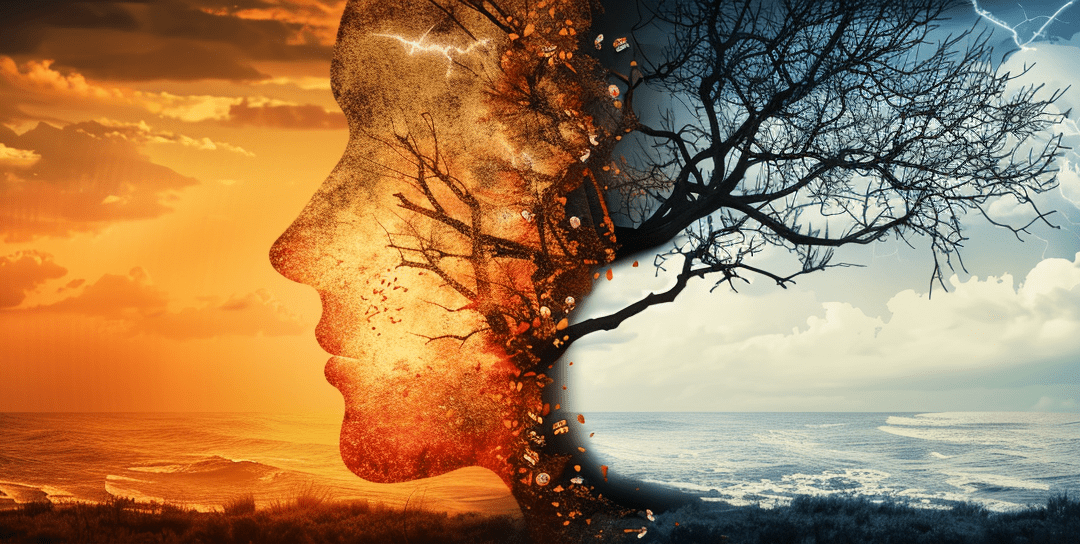What is Bipolar Disorder?
Bipolar disorder, formerly known as manic-depressive illness, is a mental health condition characterized by extreme mood swings that include emotional highs (mania or hypomania) and lows (depression). These mood swings can affect sleep, energy, activity levels, behavior, and the ability to think clearly. Bipolar disorder is a lifelong condition, but it can be managed with a combination of medication, therapy, and lifestyle changes.
Signs and Symptoms of Bipolar Disorder
Recognizing the signs and symptoms of bipolar disorder is crucial for early intervention and treatment. The symptoms are typically divided into those associated with manic episodes and those associated with depressive episodes.
Manic Episode Symptoms
- Elevated mood: An unusually high and optimistic mood, or feeling extremely irritable.
- Increased energy: Excessive energy, restlessness, or increased activity levels.
- Decreased need for sleep: Feeling rested after only a few hours of sleep or having difficulty sleeping.
- Grandiosity: Inflated self-esteem or feeling invincible.
- Racing thoughts: Rapid and often unconnected thoughts.
- Distractibility: Inability to focus or maintain attention.
- Impulsivity: Engaging in risky behaviors, such as spending sprees, reckless driving, or sexual indiscretions.
- Pressured speech: Talking rapidly and loudly, often with a sense of urgency.
Depressive Episode Symptoms
- Persistent sadness: Prolonged feelings of sadness, hopelessness, or emptiness.
- Loss of interest: A marked decrease in interest or pleasure in almost all activities.
- Fatigue: Feeling tired or having a lack of energy.
- Sleep disturbances: Insomnia or excessive sleeping.
- Appetite changes: Significant weight loss or gain, or changes in appetite.
- Difficulty concentrating: Trouble focusing, remembering, or making decisions.
- Feelings of worthlessness: Excessive guilt or feelings of worthlessness.
- Thoughts of death or suicide: Recurrent thoughts of death, suicidal ideation, or suicide attempts.
The Connection Between Bipolar Disorder and Addiction
Untreated bipolar disorder can lead to a host of complications, one of the most significant being an increased risk of addiction and substance abuse. Several factors contribute to this heightened risk.
Self-Medication
Individuals with bipolar disorder often turn to drugs or alcohol as a form of self-medication. They may use substances to cope with the intense emotional highs and lows, attempting to stabilize their mood or escape the overwhelming feelings of depression or mania. Unfortunately, this coping mechanism can quickly spiral into addiction, creating a dangerous cycle that exacerbates both conditions.
Impulsivity and Risk-Taking Behavior
Manic episodes are characterized by increased impulsivity and risk-taking behavior, which can include experimenting with drugs or engaging in heavy drinking. The lack of judgment and increased desire for thrilling experiences during manic phases can lead to substance abuse, which, in turn, can trigger or worsen manic and depressive episodes.
Stress and Emotional Instability
The chronic stress and emotional instability associated with bipolar disorder can make individuals more susceptible to addiction. The challenges of managing the condition, coupled with the stigma and misunderstanding often associated with mental health disorders, can lead to feelings of isolation and despair. Substances may be used as a temporary escape from these feelings, but they ultimately worsen the individual’s mental health and overall well-being.
The Importance of Treatment
Effective treatment for bipolar disorder can significantly reduce the risk of addiction and substance abuse. A comprehensive treatment plan typically includes medication, psychotherapy, and lifestyle changes.
Medication
Mood stabilizers, antipsychotic medications, and antidepressants are commonly prescribed to manage the symptoms of bipolar disorder. These medications help regulate mood swings and reduce the severity of manic and depressive episodes, making it easier for individuals to maintain stability and avoid turning to substances for relief.
Psychotherapy
Therapy is an essential component of treatment for bipolar disorder. Cognitive-behavioral therapy (CBT), dialectical behavior therapy (DBT), and other therapeutic approaches can help individuals understand their condition, develop coping strategies, and address any underlying issues contributing to their substance use. Therapy also provides a safe space for individuals to express their feelings and receive support.
Lifestyle Changes
Implementing healthy lifestyle changes can play a crucial role in managing bipolar disorder and reducing the risk of addiction. Regular exercise, a balanced diet, adequate sleep, and stress management techniques such as mindfulness or meditation can help stabilize mood and improve overall mental health. Avoiding alcohol and recreational drugs is also essential, as these substances can interfere with treatment and exacerbate symptoms.
Raising Awareness and Reducing Stigma
Bipolar Awareness Day 2024 is an opportunity to educate the public about bipolar disorder and the importance of early intervention and treatment. Raising awareness can help reduce the stigma associated with mental health conditions, encouraging individuals to seek help and support without fear of judgment.
Educating the Public
Public education campaigns can provide valuable information about the signs and symptoms of bipolar disorder, helping individuals recognize the condition in themselves or their loved ones. Education also promotes understanding and empathy, fostering a supportive community environment for those affected by bipolar disorder.
Encouraging Open Conversations
Encouraging open and honest conversations about mental health can break down barriers and reduce stigma. Sharing personal stories of living with bipolar disorder and the journey to recovery can inspire others to seek help and feel less alone in their struggles.
Providing Resources and Support
Access to resources and support is essential for individuals with bipolar disorder and their families. Mental health organizations, support groups, and online communities can offer valuable guidance, information, and a sense of community. Providing these resources can empower individuals to take control of their mental health and seek the treatment they need.
Bipolar Awareness Day 2024 is a vital opportunity to raise awareness about bipolar disorder, its signs and symptoms, and the impact it can have on addiction and substance abuse if left untreated. By understanding the connection between bipolar disorder and addiction, we can better support those affected and promote early intervention and effective treatment. Together, we can reduce the stigma surrounding mental health, encourage open conversations, and provide the resources needed to help individuals with bipolar disorder lead healthy, fulfilling lives.









